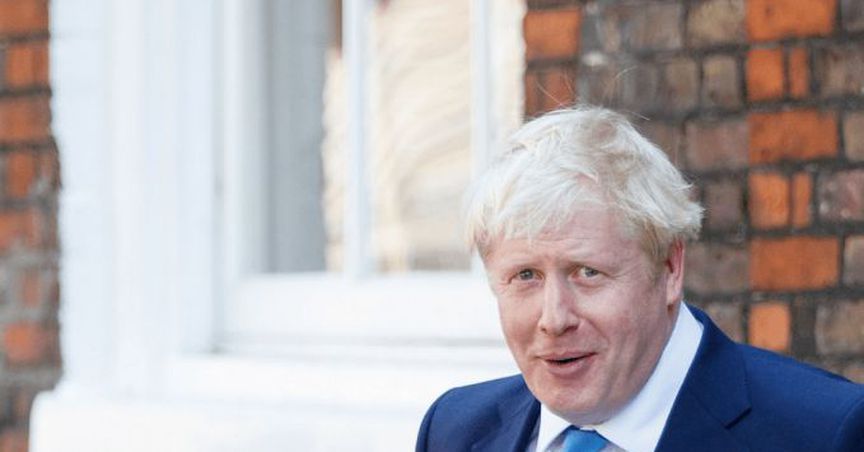On 23 July 2019, the Conservative Party crowned Boris Johnson as the leader of the party after he was pronounced to be the winner of its leadership contest and will become the next prime minister of the country. Alexander Boris de Pfeffel Johnson, or widely known as Boris Johnson, secured 92,153 votes to 46,656 by Jeremy Hunt, the foreign secretary, to handsomely win the race to succeed Theresa May as Tory leader and lead the country out of the most cumbersome and divisive political challenge the country has seen in peacetime. Mr Johnson is due to move into Downing Street on 24 July 2019, where he would be immediately be confronted by the challenge charting a course out of the Brexit impasse and uniting his divided party and the country.
Mr Johnson came to the fore of British public life when he was elected the mayor of London for two terms from 2008 to 2016 before he took a pro-Brexit stance ahead of the European Union referendum. He was the biggest star of the campaign to leave the EU and has made it to the top through a combination of charm and ruthlessness to replace Ms May who was chosen to lead the country in 2016. After having failed to become the prime minister of the country in 2016, Mr Johnson started an energetic campaign against the deal secured by Ms May, which seemed to have impacted many swing votes.
Johnson, who is often compared with US President Donald Trump, began his career as a journalist. As a Brussels correspondent, he wrote sceptically about the European Union and was known to play loose with facts. During the referendum, he became the unofficial leader of the Vote Leave campaign by going against his political allies, including the Pro-Remain Conservative Prime Minister David Cameron, who used to see him as the future prime minister of the country. His ability to read the mood of the public became evident during the campaign, during which, he made a lot of questionable assertions. This included claims by the Leave Camp that the freedom of movement in EU made the UK less safe and the country was paying £350 million a week to the EU, which could instead be used to fund National Health Service. He sought votes of the people by claiming that the exit from the EU would enable the country to regain control over its borders and enter into agreements with other countries.
The race to become the prime minister started when Theresa May announced that she would resign as Conservative Party leader on 7 June. Her Brexit deal had been rejected by the British parliament thrice and she had proposed in her last plan to allow a confirmatory referendum if lawmakers approved her plan to leave the European Union, angering her party members. As the foreign secretary in Ms Mayâs government, Mr Johnson had sought a clean break from the EU and had gathered support for his agenda. Initially, Ms May had laid down the red lines and launched into the talks just as the Brexiteers wanted, but she ended up compromising and conceding to the EU, providing a very important lesson to the incoming prime minister.
The scheduled departure date to leave the EU is 31 October, and Mr Johnson has promised to deliver Brexit with or without a deal. Now the next prime minister has just 100 days to walk the talk, but senior Tory cabinet ministers are leading the resistance against a no-deal exit. Moreover, compounding the problems, Brussels has signalled it will not accept his proposed changes to the withdrawal deal agreed with Theresa May, which Mr Johnson described as defunct. Also, if the Conservatives lose the Brecon and Radnorshire by-election next month, the majority in the House of Commons would reduce to just one, which is alive just because of the support of 10 Democratic Unionist party MPs.
Faced with the possibility that he could soon lose his majority and Brexit deadlock at Westminster, the new prime minister is expected to start forming his new cabinet immediately, and much of the focus will be on who he entrusts with the responsibility of negotiating Brexit talks with the European Union. Many believe that he is preparing for an election within months and is taking a team of seasoned Brexit campaigners into the government, though the Conservative party is still divided between those who want to press ahead to a no-deal exit and those who believe a deal with the EU is possible. While the preferred scenario is to secure a deal with the EU that he can get passed in the parliament, giving him six months to negotiate with the European Union, Tory MPs are ready for a possible snap election in the autumn, during which Mr Johnson would seek a new public mandate for his Brexit strategy.
After Boris Johnson was declared the next British prime minister, financial markets remained unusually calm, and business groups took a constructive tone, as the FTSE 100 was up slightly and the Pound held steady, fluctuating around the $1.247 mark after Mr Johnson used his victory speech to try to drum up some optimism. Despite some cautious optimism showed by industry leaders and experts, companies fear the unsteady tone of the new prime minister, who had infamously showed little regard for business concerns in the past. Businesses also worry about his promise to Britain out of the European Union even without a deal, possibly leading to a clash and more uncertainty.
Paul Dales, chief UK economist, Capital Economics, reckons that the process is not going to be smooth with the possibility of a hard-Brexit is higher than it has ever been, and the next three months would determine whether he would survive another three months after that. Rating agency Moody said that the credit effects for the UK sovereign and related issuers would be significantly negative in case of a no-deal Brexit, while S&P said that such a scenario would reduce the competitiveness of the UK manufacturing and services by subjecting them to tariffs and non-tariff barriers and limit their access to key European markets.
Investors hope that enthusiasm by Mr Johnson for a no-deal Brexit is just a negotiating tactic and better sense would prevail to see the country sail out of the EU with a deal in place. Sterling, which is at a near-record low, would rise if he can land a soft Brexit by negotiating a better deal than Theresa May could. The UK equity market would look very attractive then as it offers much better dividend yield and is currently more than a tenth lower than European markets when valued against forward earnings. In such a case, a prudent strategy would be to buy domestically focused companies and sell companies which generate more of their business from outside the UK.
There is speculation that Mr Johnson might promise to reduce stamp duty on expensive properties and a clean Brexit would benefit construction companies as sentiment towards homeownership would improve, given the record levels seen in the labour market. The likelihood a Labour government would also reduce drastically, which would cast good news for utilities which have had to face the danger of nationalisation under a potential Labour government.
However, the possibility of a no-deal Brexit on 31 October, which many regards to be profoundly damaging for the British economy, has increased to 40%, according to a report by National Institute of Social and Economic Research (NIESR). Analysts at UBS pointed out that the Conservative party is not united, and the lack of majority poses a potential barrier for Mr Johnson. Although they believe there is a 50% chance of a no-deal Brexit, there are still high chances that the UK would ask for a further extension to exit day. This might be due to a general election because of a no-confidence vote or because of a change in stance from Mr Johnson
If uncertainties are not reduced and Mr Johnson fails to find a way out, Sterling is expected to depreciate further, with some predicting parity with the US dollar. As two-thirds of the revenue generated by the FTSE 100 companies are from overseas, Pound has a negative correlation with the FTSE 100 and the index is forecasted to outperform relative to the FTSE 250 amid weakness in the Pound. However, the domestically focused FTSE 250 will bear the brunt of a weaker pound as input costs for many firms are expected to increase with a rise in the cost of importing.
Assuming that the central bank will undertake expansionary policy to pump fresh support into the economy, bond prices have increased of late in synchronisation with the global debt market. However, investors would seek to invest outside the UK due to the political crises, increasing the borrowing cost for the country. Moreover, there is a possibility that the government would seek higher borrowing and lower taxes to engineer an economic stimulus to cushion the blow from Brexit.
The International Monetary Fund recently warned of global economic shock if Britain leaves the EU without a deal and ranked it as one of the chief threats to the world economy. While officially EU leaders have said that they look forward to working with Mr Johnson to facilitate the process, they remain wary of the new prime minister and are preparing to resist the demand for a new deal. Boris Johnson must remember that his country is far more economically dependent on the EU than vice versa and his threats of a no-deal exit fall on deaf ears in the political chambers of the European Union.




